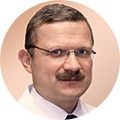Mouthwash May Reduce Spread of the New Coronavirus
Dariusz J. Nasiek, MD - Medycyna Estetyczna / Aesthetic Medicine
June 04, 2020
A recent scientific review speculates that mouthwash could inhibit the spread of SARS-CoV-2, the virus responsible for COVID-19.A new research review suggests that publicly available mouthwashes could, in theory, inhibit SARS-CoV-2. The team behind the review call for further research to be done to confirm their speculative findings. If clinical trials prove effective, the findings, published in the journalFunction, may provide another way to reduce the spread of the disease until scientists can produce an effective, publicly available vaccine.
Since the sudden emergence and rapid spread of the SARS-CoV-2 virus, scientists and researchers have focused on the development of a vaccine that could help protect people vulnerable to COVID-19. However, scientists have estimated that an effective, publicly available vaccine could take at least 12–18 months to develop.
In the meantime, some scientists are focusing on ways to reduce the rate of infection to controllable levels that will not overwhelm hospital intensive care units. One area of research involves disrupting the way the virus can take over a cell of a host as it replicates itself.
Disrupting the envelopes
SARS-CoV-2, like other coronaviruses, is an enveloped virus. This means that it creates an outer membrane by drawing on the cells of a host organism. This membrane allows the virus to replicate effectively. If scientists can disrupt this envelope, then this might slow down the spread of the virus within an organism.
Using soap and water or disinfectant can disrupt a viral envelope and kill the virus. Research has shown that disinfectants can kill the SARS-CoV-2 virus. The present review proposes that some publicly available mouthwashes may be able to help fulfill this role.
Scientists have shown that the virus replicates significantly in the throat. This may mean that a patient with COVID-19 is likely to have the highest concentration of the virus in this area. With high levels of the virus in the throat, it is easy for a person to transmit it through breathing, coughing, and sneezing.
Previous research into alcohol’s ability to disrupt the SARS-CoV-2 envelope has focused on products with a high alcohol content of between 60% and 70%.
However, there is little high-quality research exploring how lower-strength alcohol-based products might affect the viral envelope. The authors of the current study wanted to see if alcohol-based mouthwashes — which come into contact with a person’s throat, a key site for viral load, and a source of viral transmission — could, in theory, inhibit the transmission of the virus or reduce its severity.
Put simply, if a significant spread of the virus originates from the throat, then it makes sense to trial the efficacy of products that have the potential to kill the virus at this location. The authors note that due to the speed that the new coronavirus emerged, there is still much to learn about how it functions. As such, their theory relies on certain assumptions that may turn out to be unfounded.
For example, scientists do not know how the virus moves from a person’s throat or nose to the lungs. The authors note that this could occur through breathing in dead viral cell debris, viral shedding, or neighboring cells becoming infected.
However, given the urgency of the public health crisis, it is necessary to propose speculative theories that scientists can then test in laboratories and, finally, in clinical trials.
Mouthwashes might be effective
Although there is little scientific literature exploring the effects of low-alcohol concentrations on viral envelopes, the authors drew on research that looked at the effects on mammalian cells.
The virus develops its envelope from these cells. So, it may be possible to compare the effects on these cells to the potential effects on the viral envelope.
After studying the literature, the researchers found that there was good reason to suppose that some low-alcohol products would, in theory, be able to disrupt the viral envelope of SARS-CoV-2.
The authors make it clear that their research is speculative. Researchers need to carry out more research to discover whether mouthwashes will affect the new coronavirus.
Although the authors make it clear that their research is speculative, there is some optimism that mouthwashes can help reduce the spread of the new coronavirus.
Nasiek, Dariusz, MD
Aesthetic Medicine
Garfield, NJ
SPONSORED ARTICLE
For the most up-to-date information, please contact the company directly.The photos contained in the article serve only as an illustration of the article.

Dr Dariusz J. Nasiek, MD
American Board of Anesthesiology
American Board of Pain Medicine
American Board of Interventional Pain Physicians
Expertise:
- Author of the book “PRP – New Paradigm in Regenerative Medicine”
- Thousands and thousands of procedures performed in the OR
- Hundreds of legal cases represented
- 50s interviews given and articles written
- Dozens of seminars conducted
Uniqueness:
- The only practice of neurology and interventional pain dedicated 100% to helping accidents victim
BUSINESS ONLINE CATALOG
